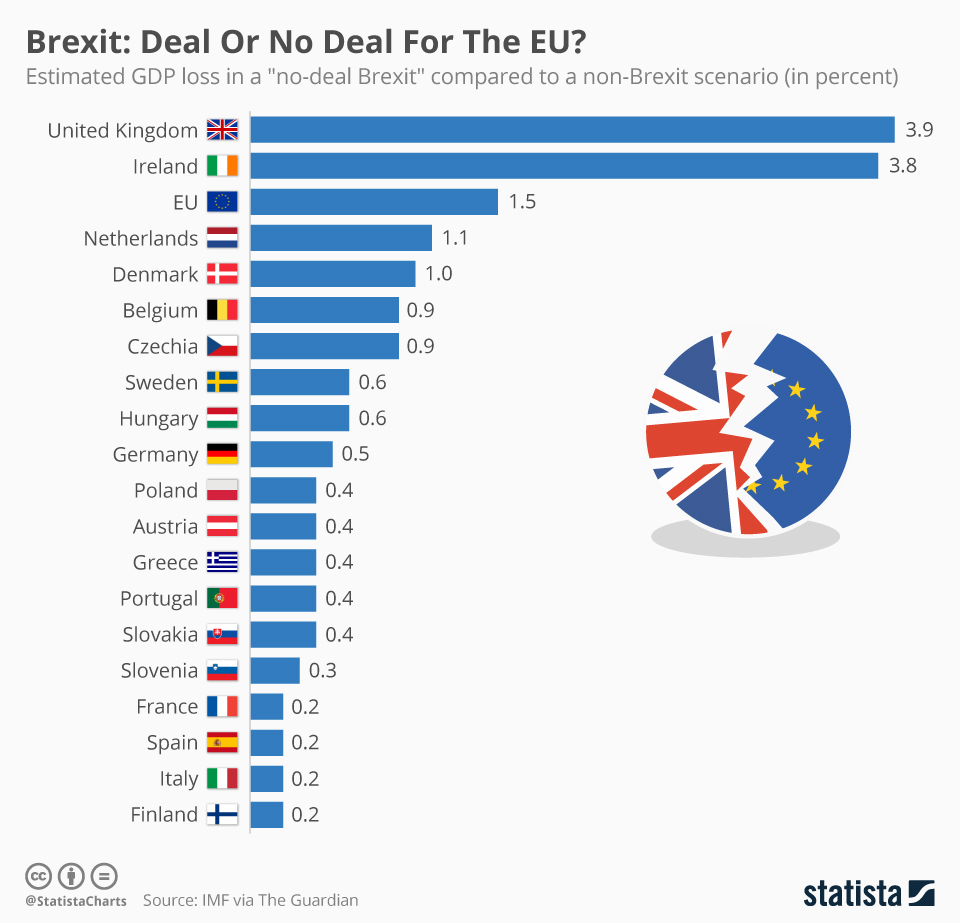Brexit: Deal Or No Deal For The EU?
Hard Brexit
The Washington-based fund said the economic output of the EU-27 could be reduced by 1.5 percent of GDP by 2030. Ireland, the Netherlands, Denmark and Belgium, all countries with close trading links to the UK, would be hit hardest. Germany would lose 0.5 percent of its GDP due to industrial supply chains. Nations with financial ties to the City of London, such as Malta, Cyprus and Luxembourg, would also be negatively affected by a "no deal". The IMF estimated, for example, that two-way bank claims between Luxembourg's financial sector and the UK were about 220 percent of Luxembourg's GDP.

Description
This chart shows the estimated GDP loss in a "no-deal Brexit" compared to a non-Brexit scenario (in percent).





















